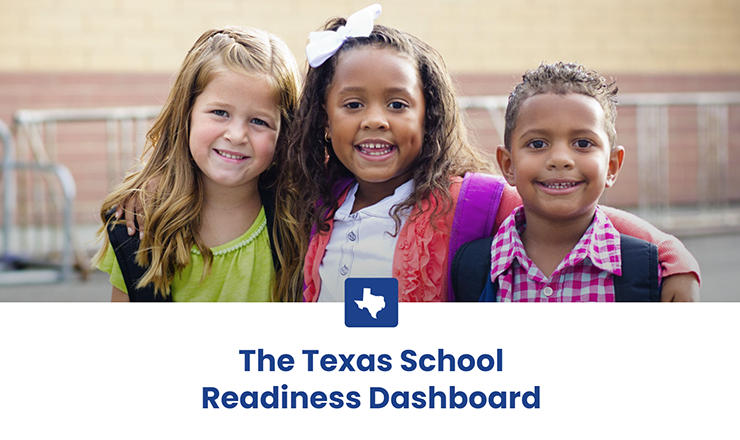As we enter March, legislative sessions continue to heat up. From progress around Medicaid expansion in one Southern state to growing momentum on postpartum health care coverage, paid family leave (PFL), tax credits, and child care subsidies, today’s sample of legislative trends come from our team of state policy experts. This post marks the second in our monthly blog series covering prenatal-to-3 state policymaking across the states.
This year, legislators throughout the country have taken evidence-based action to support families with young children. Unfortunately, some efforts have already stopped just short of the finish line. Time is of the essence, especially when it comes to legislative sessions. The majority of states are now in session, with six statehouses gaveling in since our last update. By the end of March, however, 12 states will adjourn.
Expanded Income Eligibility for Health Insurance
In 2023, North Carolina’s legislature, following a decade-long battle, passed Medicaid expansion, making the Tar Heel state the 41st (with the District of Columbia) to implement this policy. Except for North Carolina, states that expanded Medicaid in recent years did so through ballot measures. Health policy experts hoped North Carolina’s progress would usher in a new era, in which the mostly Southern states that have not yet expanded Medicaid might warm to the policy for the first time since the Affordable Care Act (ACA) took effect.
Over the last month, Alabama, Georgia, Florida, Mississippi, South Carolina, and Tennessee have indeed introduced bills to expand income eligibility for health care coverage to adults, including parents, with incomes at or below 138% of the federal poverty level. Historically, however, Medicaid expansion bills in these states have failed to gain momentum.
One exciting state to watch this year is Mississippi. Although the state has introduced dozens of Medicaid expansion bills over the years, 2024 marks the first introduction of a bipartisan expansion bill, H.B. 1725, which passed the Mississippi House this week on a vote of 96-20.
And in Alabama, the House passed H.B. 152, which would allow gambling revenue to be used for health care coverage for low-income adults. This marks the first time an expansion of income eligibility for health insurance similar to the Medicaid expansion under the ACA has received bipartisan support in the Alabama legislature.
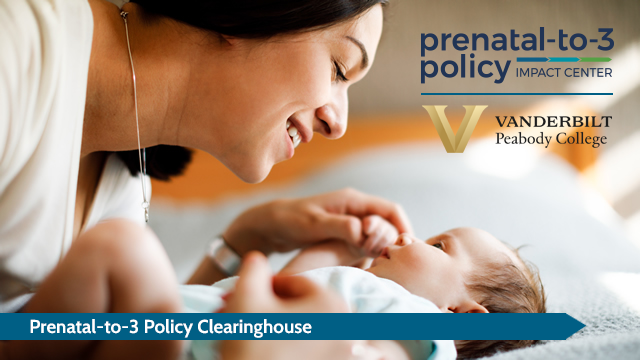
Did you know that rigorous studies suggest that expanding Medicaid income eligibility reduces both maternal mortality and child neglect rates?
Postpartum Medicaid Extension
In most states, pregnant people can access Medicaid at higher income levels than other adults, but pregnancy coverage traditionally lasts for only 60 days following birth. Over the last year, the number of states opting to extend postpartum Medicaid coverage to 12 months grew to 47 (with the District of Columbia). Only Arkansas, Idaho, Iowa, and Wisconsin have not implemented a postpartum coverage extension.
This year, however, two of those remaining states are advancing bills to extend coverage to one year:
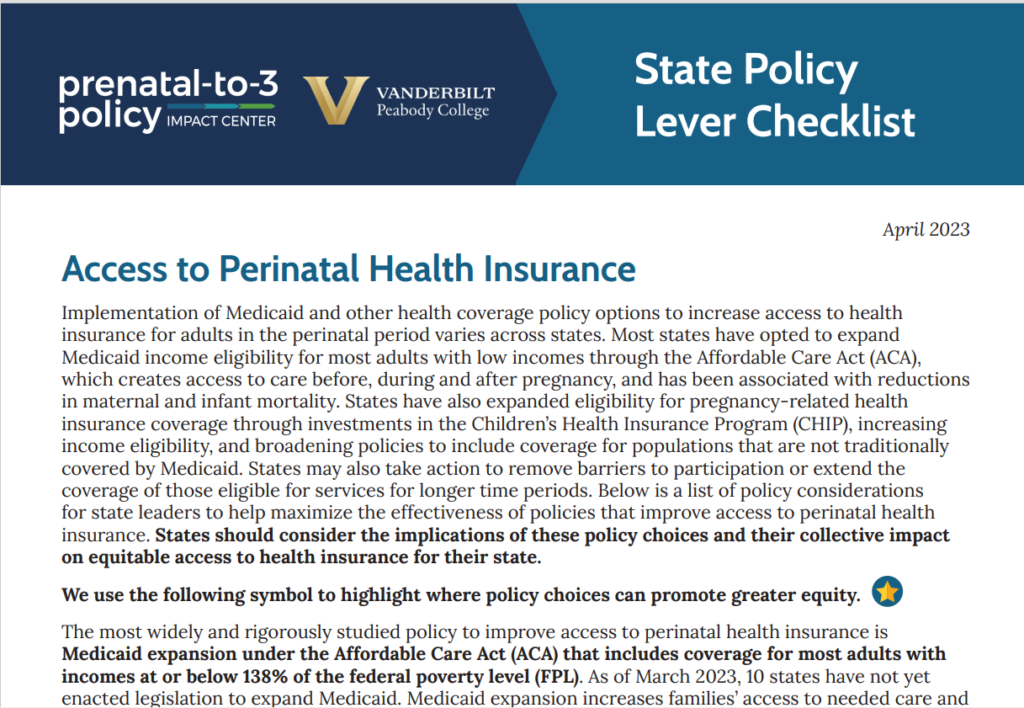
Our State Policy Lever Checklist contains a list of considerations for state leaders to maximize the effectiveness of a proposal to increase access to perinatal health insurance.
Paid Family Leave
Last month, we reported that New Mexico lawmakers quickly advanced S.B. 3, which would have created a statewide PFL program of up to 12 weeks. The bill passed the Senate, but died in the House on a vote of 34-36. Meanwhile, the Virginia House passed S.B. 373 to create a statewide PFL program of up to 8 weeks, and the bill now heads to Governor Glenn Youngkin’s desk for signature. The previous Senate-passed version of the bill would have provided 12 weeks of leave.
Other PFL updates across the states:
- Hawaii: Lawmakers in multiple committees of both chambers are actively considering PFL. Most recently, the Senate Ways and Means committee approved S.B. 2474, which would create a 16-week PFL program, sending the bill to the Senate floor for debate. H.B. 2757, which would create a 12-week program, currently awaits consideration by the House Committee on Finance.
- Rhode Island: Lawmakers held a committee hearing for H. 7171 on Valentine’s Day. The bill would increase the state program’s length of leave from 6 to 12 weeks and expand the definition of “family” to include siblings, grandchildren, and care recipients.
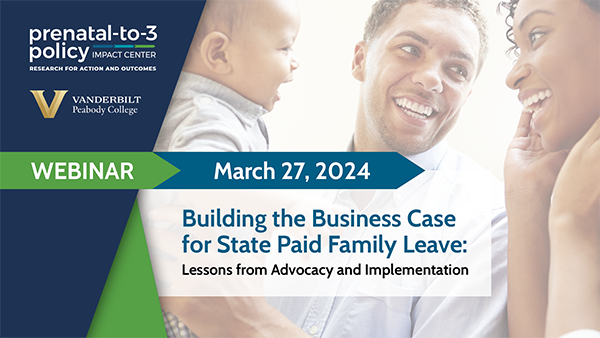
Register for our upcoming webinar, Building the Business Case for State Paid Family Leave: Lessons from Advocacy and Implementation.
State Child Tax Credits and Earned Income Tax Credits
State tax codes have a significant impact on the experiences of young children in low-income households. State legislatures across the country are responding to child tax credits (CTCs) and earned income tax credits (EITCs) with bipartisan support, but not always enough to carry the bill to the governor’s desk.
Since we reported on this trend in February, two promising Virginia bills to establish a CTC and expand the generosity of the state’s EITC—H.B. 969 and H.B. 621, respectively—have been continued to the 2025 session, effectively killing the legislation for this year. Meanwhile, Missouri’s H.B. 1913, which proposes to make the state’s EITC refundable, awaits a hearing.
Several CTC bills continue to gain traction:
- Kansas: H.B. 2687, which would establish a refundable CTC, received a hearing in the Committee on Taxation last week. The bill provides a maximum credit of $600 per child under age 18. The credit slowly phases down to $25 for incomes above $350,000 per year.
- Nebraska: L.B. 1324, which would establish a refundable CTC, was heard in committee last week. The bill provides a credit of $1,000 per child under age 6 and begins phasing out at incomes above $75,000 per year for single filers and $92,500 for joint filers.
- Maryland: Companion bills H.B. 1007 and S.B. 0766 received hearings last week. Maryland’s existing CTC includes children under age 6 or under age 17 with a disability—these bills would expand eligibility to include all children under age 18. Currently, only families with incomes below $15,000 per year qualify—these bills would significantly increase the income limit to joint filers making less than $65,000 and single filers making less than $45,000.
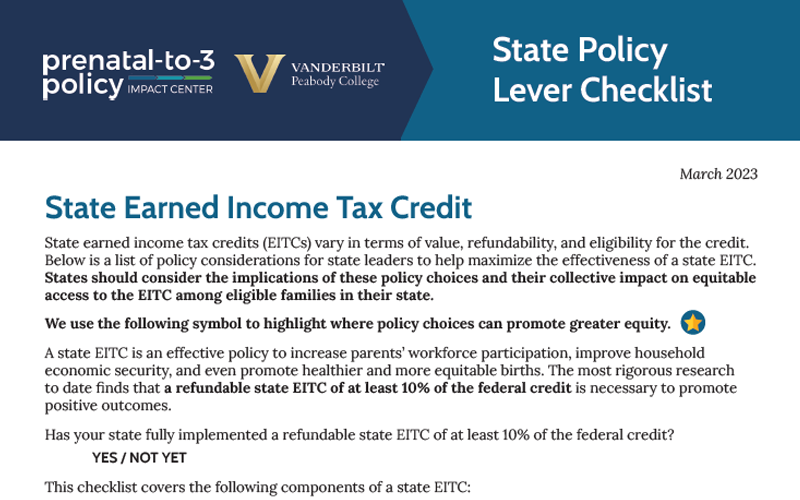
Our State Policy Lever Checklist helps lawmakers make effective and equitable decisions about EITC components, such as eligibility and funding.
Child Care Subsidies
In last month’s update, we reported that several states are considering making child care educators categorically eligible for child care subsidies. In the past month, California, Colorado, Iowa, Maine, Rhode Island, Utah, and West Virginia have joined Indiana, Nebraska, New Hampshire, New Jersey, Vermont, Virginia, and Washington in proposing such legislation. Although Virginia’s bill was continued to the 2025 session, Washington’s H.B. 2124 passed the Senate this week and now heads to Governor Jay Inslee’s desk. This bill would give Early Head Start, Head Start, child care, and early intervention providers categorical eligibility.
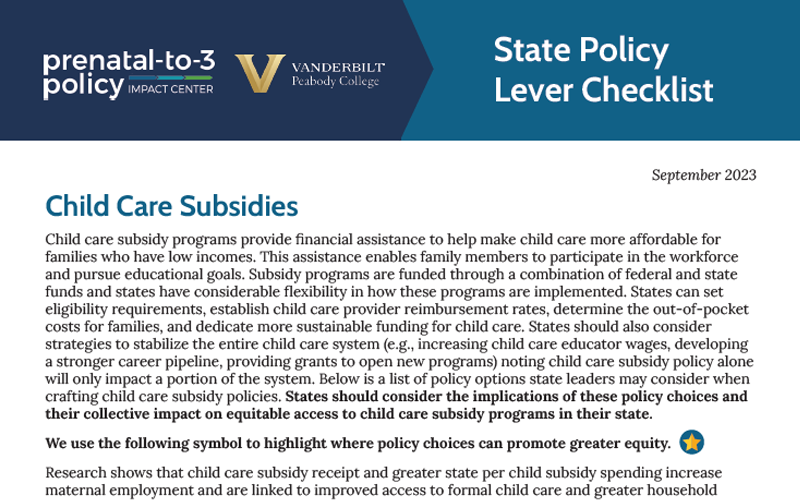
Our State Policy Lever Checklist for child care subsidies covers program provisions that help increase access and affordability.
These updates provide a snippet of the type of legislation introduced so far in the 2024 session. As our team continues to track state legislation and administrative changes for our 12 evidence-based policies, we will continue to post monthly state policy updates on our blog through June. Follow us on social media and sign up for our newsletter and blog email updates to stay up-to-date as 2024 legislative sessions progress.


